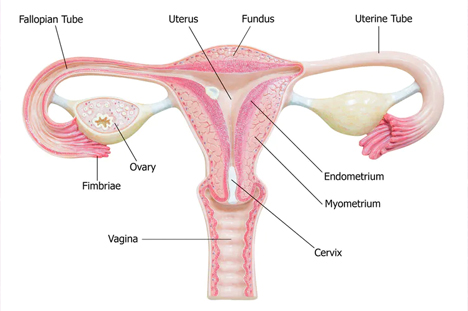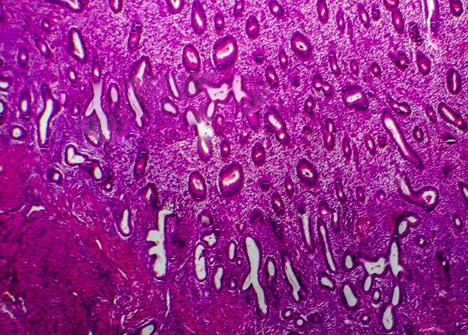What is Endometrial Ablation?
When women have significant bleeding or excruciating periods, they need to undergo a thorough workup and receive a stepwise treatment plan tailored to their needs by their healthcare provider. One of the options available is endometrial ablation, which means the destruction of the inner lining of the uterus.
The inner lining of the uterus, the endometrium, is essentially a layer of glands that grow every month in preparation for menstruation or the bleeding you experience during your period. Sometimes, however, that bleeding can be excessive, causing disruptions in your life during your period or even afterward if you experience anemia due to blood loss.
Anemia, or feeling tired with a lack of energy, is often a result of heavy periods.
What Are Reasons To Have an Endometrial Ablation?
 You may need to undergo endometrial ablations for several reasons. However, the main symptoms that may lead your gynecologist, to inform you about an ablation are:
You may need to undergo endometrial ablations for several reasons. However, the main symptoms that may lead your gynecologist, to inform you about an ablation are:
- Heavy bleeding during your menses that disrupts your everyday life, especially if it is more than two pads an hour during your periods
- Heavy bleeding that causes you to be anemic (have low blood counts) which can lead to chronic fatigue, generalized tiredness, and low energy
- Periods that last longer than they should
Before undergoing an endometrial ablation, it is always essential to do a thorough investigation by a trained gynecologist to figure out why the bleeding is happening.
Unfortunately, your gynecologist in Midtown, NYC will not perform an endometrial ablation if you have a current infection, cancer, or abnormalities that affect the uterus structure. They will need to make sure you have none of these before performing the ablation.
How Is Endometrial Ablation Performed?

There are several ways to perform endometrial ablation. Depending on the workup leading to the decision to perform an ablation, explaining the risks of perforation, continued bleeding, pain, infection, damage to surrounding organs such as bowel or bladder, and potentially need for further surgery such as hysterectomy.
Your gynecologist will discuss which method for ablation will suit you best, including the following:
- Radiofrequency ablation. One of the most common is NovaSure ablation due to its length, success rates, and safety profile. This procedure uses a small device (array) that runs radio waves through the device causes excess heat to vaporize the glands during an ablation.
- Hydrotherm ablation instills hot water within the uterus to destroy the lining of the uterus. This procedure takes much longer than other forms of ablation. However, the water can contour better to abnormalities of the uterus.
- Microwave ablation uses exactly that, microwaves of energy to cause internal heating of the glands that lead to their destruction.
- Electrosurgical ablation uses a small scope and device with an electrical current running through it to destroy the uterus’s glands or endometrium.
What To Expect After the Procedure?
Generally, you may undergo these procedures safely in our Women Health and Wellness Center in New York. You can choose to be asleep and feel nothing during the process. The treatment is outpatient, and you will be able to go home after a short recovery period in the office. You may experience cramping and a slight burning sensation in the pelvis for a few days after. Pain medications your doctor will give you can help you be comfortable during this time. Generally, you can expect to start feeling better within a week after the procedure and go back to most of your everyday activities at that time also.
The one caveat to the procedure is that you are finished with childbearing as endometrial ablations due to decreased fertility. They also increase the chance that you may have an ectopic or pregnancy in an unsafe location such as the cervix or fallopian tube if you somehow conceive after one. For this reason, your doctor will recommend you to have a tubal ligation before or after the procedure or use some form of contraction until menopause.
The effects of the ablation aren’t generally instant, however. Some women will notice minor cramping and spotting after the procedure for a few weeks that gradually reduces in quantity and frequency, but it may take a few months before reaching the desired goal.
FAQ
What Are the Side Effects of Endometrial Ablation?
Possible side effects of endometrial ablation include:
- abnormal vaginal discharge with an unpleasant odor
- fever or chills
- severe cramping and/or pain in the pelvic area
- heavy uterine bleeding
- persistent bleeding that lasts more than two days endometrial ablation
- problems with urination (frequent and/or difficult)
How Much Does Endometrial Ablation Cost?
The cost of endometrial ablation depends on the severity of your condition and other factors. That’s why the cost of the procedure can range from $3,700 to $10,000. To define the exact cost of endometrial ablation, you must contact a doctor to undergo a thorough examination and diagnosis.
How Long Does Endometrial Ablation Last?
Depending on the technique used, the actual procedure takes between 2 and 10 minutes. But you may need to stay in the recovery room for a few hours. Your doctor can monitor your condition to prevent the development of complications.
What Are the Risks of Endometrial Ablation?
Minor side effects from the procedure can occur a few days after the procedure. They include cramps, nausea, and frequent urination. Bloody, watery discharge may occur several weeks after the procedure and can be more pronounced during the first few days after endometrial ablation.
Complications of the procedure are pretty uncommon. They may include:
- Accidental perforation of the uterus,
- Tears or damage to the cervix
- Infections, bleeding and burns to the uterus or intestines
In sporadic cases, the fluid used to dilate the uterus during the procedure may enter the bloodstream and build up in the lungs (pulmonary edema). Additionally, some women may have regrowth of the endometrium and may need additional surgery to remove it.
How to Prepare for the Procedure?
In the weeks before your procedure, your doctor may check you for pregnancy. You shouldn’t undergo endometrial ablation if you are pregnant. You should also check for cancer. A thin tube (catheter) is inserted through the cervix to take a small sample of the endometrium for cancer testing. You should also remove the IUD a few weeks before the procedure.
Some types of endometrial ablation have a higher success rate when the lining of the uterus is thin. Your doctor may prescribe medication or perform dilation and curettage to scrape off excess tissue. It would help if you also discuss your options for anesthesia before the procedure. Some endometrial ablation techniques require general anesthesia, so you sleep during the treatment. Your doctor can perform other types of endometrial ablation with sedation or numbing injections into the cervix and uterus.
How Long Does the Effect of Endometrial Ablation Last?
The results of endometrial ablation are not noticeable right after the procedure. It may take several months to see definitive effects, but endometrial ablation usually reduces the amount of blood lost during menstruation. Most women will have a lighter period, while others will stop menstruating altogether. You should also know that endometrial ablation is not a sterilization procedure, so you should continue to use contraception to prevent pregnancy resulting in miscarriage.
Important Reminder: The only intent of this information is to provide gynecology guidance, not definitive medical advice. Please consult an OBGYN doctor about your specific condition. Only a trained, experienced gynecologist or certified gynecology specialist can determine an accurate diagnosis and proper treatment.
Have questions about Endometrial Ablations? Please schedule an appointment with the best OBGYN in Manhattan by calling our office today.
Updated on Sep 23, 2023 by Manhattan Women’s Health and Wellness
Best-in-class
New York Gynecology Clinic
Manhattan Specialty Care in the Press

Call now to make an appointment with our highly rated Manhattan Gynecology doctors regarding your health. We look forward to seeing you!
book online now
(212) 378-9985
New York City Locations:
Manhattan Women's Health & Wellness (Upper East Side)
983 Park Ave, Ste 1D17
New York, NY 10028
(212) 389-1904
Manhattan Women's Health & Wellness (Midtown)
56 W 45th St, Ste 815
New York, NY 10010
(212) 677-7654
Manhattan Women's Health & Wellness (Union Square)
55 W 17th St, Ste 104
New York, NY 10011
(212) 378-9985